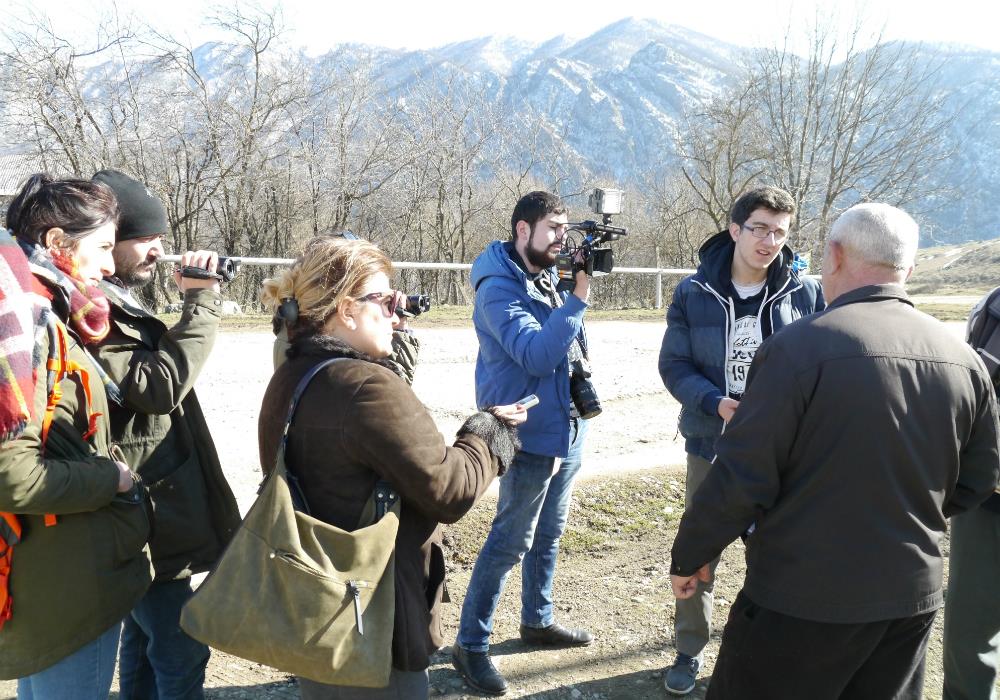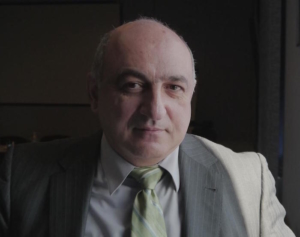How freedom of speech was tolerated in Armenia
From the point of view of the freedom of speech, Armenia looks like a calm harbor against the background of escalation of repressions against journalists in the most problematic countries and scandalous changes in the media legislation in some EU member-states. At the first sight, nothing has changed here either for the better or for the worse.
Being the main source of information, the television still remains under the vigilant political control. The radio has been stuck in the musical-entertainment format. As for independent investigative journalism, it survives only at the expense of foreign grants.
At the same time, nothing, but the financial opportunities, restricts the freedom of on-line and print media. Journalists neither have been jailed, nor got under an overwhelming burden of fines. Even the “Eurasian winds, that the Armenian pro-democratic public apprehended so much after the country had joined the Eurasian Economic Union (EAEU), have not disturbed the seeming calmness of this harbor.

However, the observers, who are sensitive to atmospheric fluctuations, can’t help noticing alarming signs of the climate change.
The demonstrative in this regard was the Armenian establishment officials’ response to the journalists’ inconvenient questions during the event, dedicated to the Day of the Armenian Army, on January 28. “We have been sick of them!- Gorik Hakobyan, Armenian National Security Service Director [since February 12 adviser to the President of Armenia], loudly summed up his passing through lined up representatives of press, who were interested in expected changes in his agency.
Navasard Ktchoyan, the Head of Ararat Eparchy of Armenian Apostolic Church, did not find any other argument to comment rumors, compromising him, rather than to tell journalists: “You are not representatives of the public (in other words, “I am not obliged to explain you anything).
Video footages of these episodes were widely spread in virtual space, causing lots of responses. Aram Abramyan, Editor-in-Chief of The Aravot newspaper, tried to explain in his editorial the nature of “high relations of the clergyman and the “law-enforcer with representative of the media:… “They believe, all journalists are “flaky persons, “who are in the way, “pettifogging, “writing on order and they should be tolerated for some unclear reasons.
Increasing immunity to critics and neglect of reputation risks have become more peculiar for the highest officials and oligarchs (as a rule, the same persons), feeling themselves lawful masters of the country. Their private interests and resistance to reforms have always been the factors, hampering a progress in different spheres, including in the media field. It is noteworthy, that a care of the international image – that is, one of those “unclear reasons, made official Yerevan compromise with the civil society and the journalists, upholding their rights.
As a result, at the end of the 1990s, the state broadcaster’s preservation was prevented. Under the draft law, passed by the Parliament in the first reading, it was to co-exist with the being established de-jure public broadcaster. Later, obligatory registration of media outlets was abolished, attempts to restrict the Internet freedom and exert pressure on the disloyal press through a wave of defamatory suits from representatives of the power encirclement, were also prevented.
The Constitutional Court’s recent resolution of October 2015, ceasing a practice of free interpretation of a principle of protection of information sources by the investigative and law-enforcement bodies, was an important success. It would hardly happen if there had been no consolidated position of the media community, NGO sector and international organizations, first of all, the Office of the OSCE Representative on Freedom of the Media.
Due to these compromises, the information situation in Armenia has been assessed by different rating surveys (Freedom House, Reporters Sans Frontières) as more favorable than in most post-soviet countries, in particular, its partners in the Eurasian Economic Union.
However, the recent inside and outside calls to the people in power to observe the decencies, hardly reach the goal. Another reason for that is that Armenia has chosen her integration vector and that Yerevan’s western partners have shown greater tolerance towards its deviation from democratic standards in new geopolitical realities.
Journalists were among those, who suffered as a result of the law-enforcers’ dispersal of the protest rally against increase of the electricity tariffs, in the capital’s Bagramyan Avenue, on June 23, 2015.
Apart from inflicted injuries, their editorial equipment and memory storage devices were purposefully damaged. Despite that, only one investigator probed into a criminal case on excessive use of force against 1 500 protestors and the media representatives.
Three months later, a special investigation group was formed as a result of interference of journalistic and international organizations. However, not all victims have been interviewed yet. The investigation process makes it clear that none of the policeman or officials will again be made liable for power abuse and hampering journalists’ professional activity. If compared with the similar incidents of the past years, the novelty here is that almost all episodes of the law enforcers’ illegal actions and their orders had been shot on photo cameras, recorded on video and disseminated in the network.
It is noteworthy that, concrete individuals, including the high-rank officials, can be easily identified. In other words, the authorities and the investigation under their control, will need a high degree of cynicism to conceal the crime.
Something similar to the cynicism, manifested when passing the amendments to the Law on Television and Radio at the end of 2015. The Government and the National Assembly (parliament) had a draft, elaborated since 2010 by the independent expert group. It had been broadly discussed in different formats and positively assessed by the OSCE and the Council of Europe. But it was finally ignored. Everything was done quickly and secretly like any other ignoble action. Another draft was submitted by the Government to the NA within two days and it was voted in two readings. It should be noted that nobody had seen it before, except the authors and those, who directly ordered it.
Let’s skip other oddities of the document and refer to the main as the hastiness of voting was substantiated by commitments to transfer to the digital broadcasting (the question about what the government was doing since 2006, when dozens of thousands of dollars were spent on elaboration of respective strategy, remains rhetoric).
Under the international regulations, amendments to the law were to envisage licensing procedure for private multiplex- operators for complete suspension of the analog broadcasting and, at the same time, to prevent closure of most regional TV channels. There is such a procedure now, but…
Firstly, under the passed law, only an operator, covering by digital signal the whole country and using exclusively its own communication infrastructure, can be licensed. To put it shortly, it means that only a huge investor can determine a fate of regional TV companies, “stuck in the analog indeterminacy. As for small and medium business, all slits to enter the Armenian broadcast market have been blocked for them.
In other words, either the next monopolist (maybe someone from the present oligarchic nomenclature) will become a long-awaited private multiplex-operator, or the state will preserve its monopoly for this service in conditions of dropping profits of the media industry. It will result in respective consequences for potential independent broadcasters.

Secondly, the abovementioned law secures Armenian authorities even from a “wonder“ – a huge investor, not depending on them. A toughened licensing procedure has been envisaged for that purpose, i.e., the national regulator – the very agency that, for instance, thirteen times refused to license government’s unfavorable “A1+ TV company, will find a reason to reject an application.
On good terms, after adoption of such a law, any international assistance to Armenia, aimed at small and medium business development, promotion of free competitiveness and fight against corruption, should have been suspended. But nothing of that kind is happening.
So, why wouldn’t Armenian establishment forget about “unclear reasons that make them tolerate the media they are so much “sick of?

Boris Navasardian, Yerevan Press Club President



















